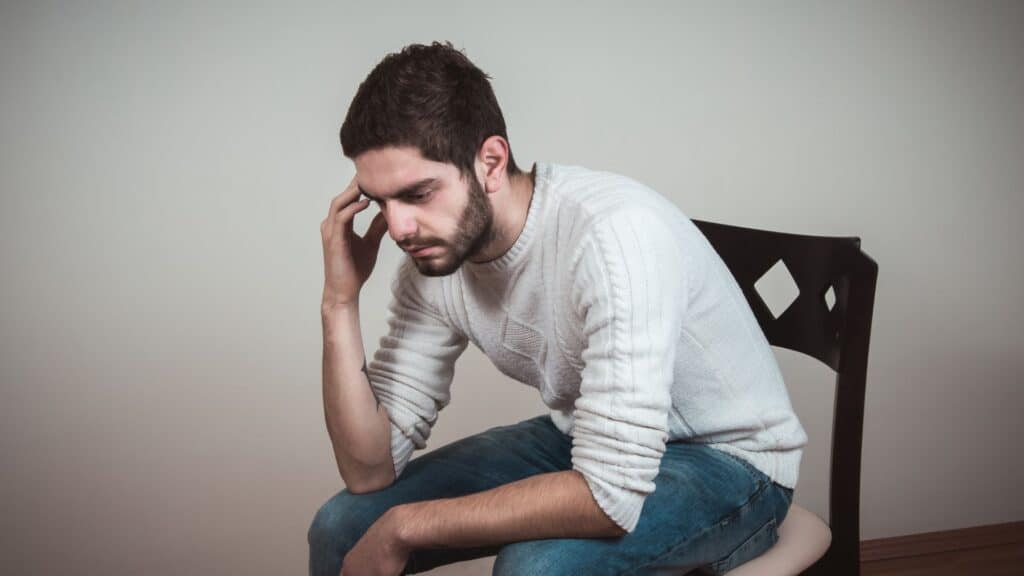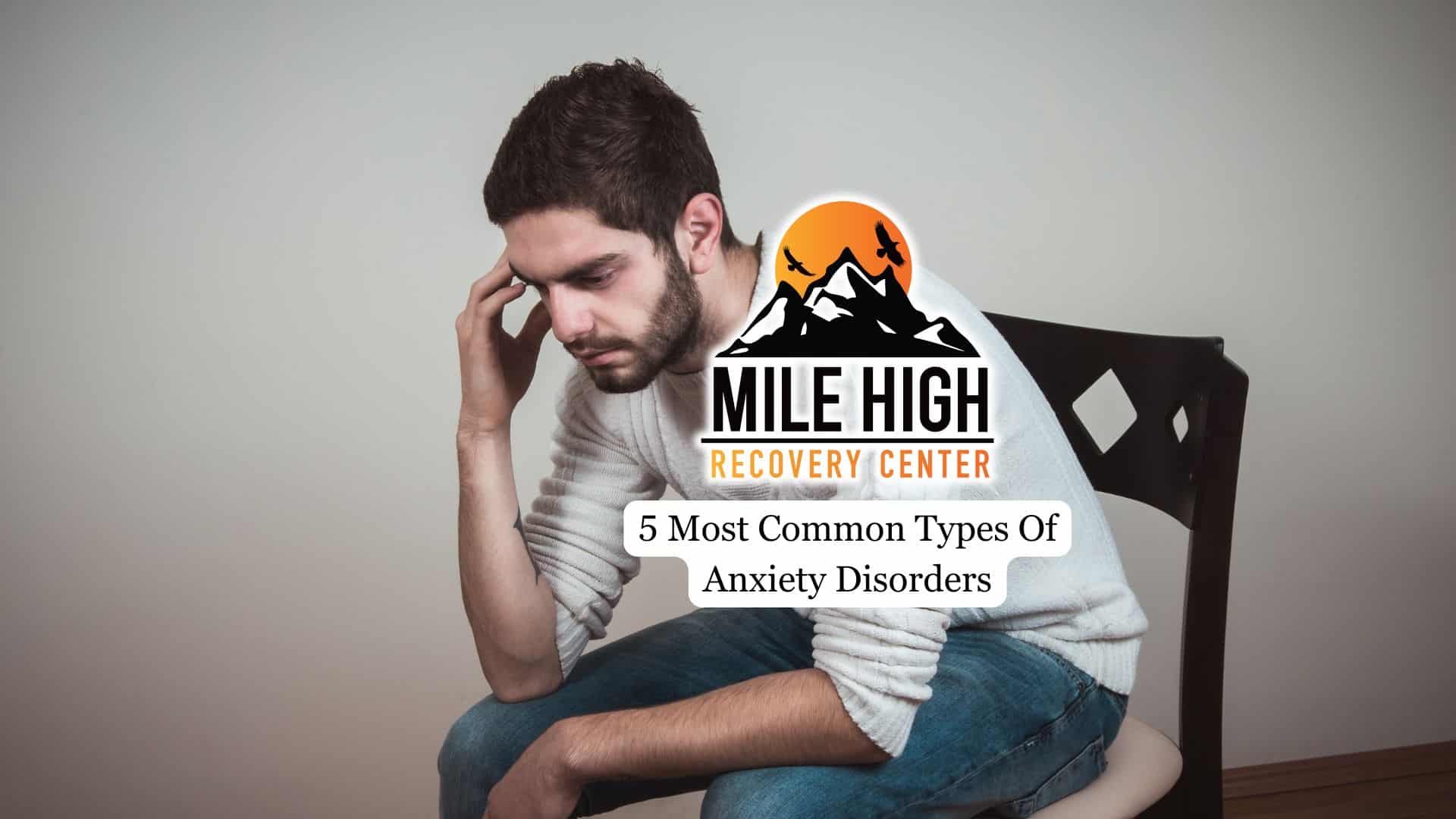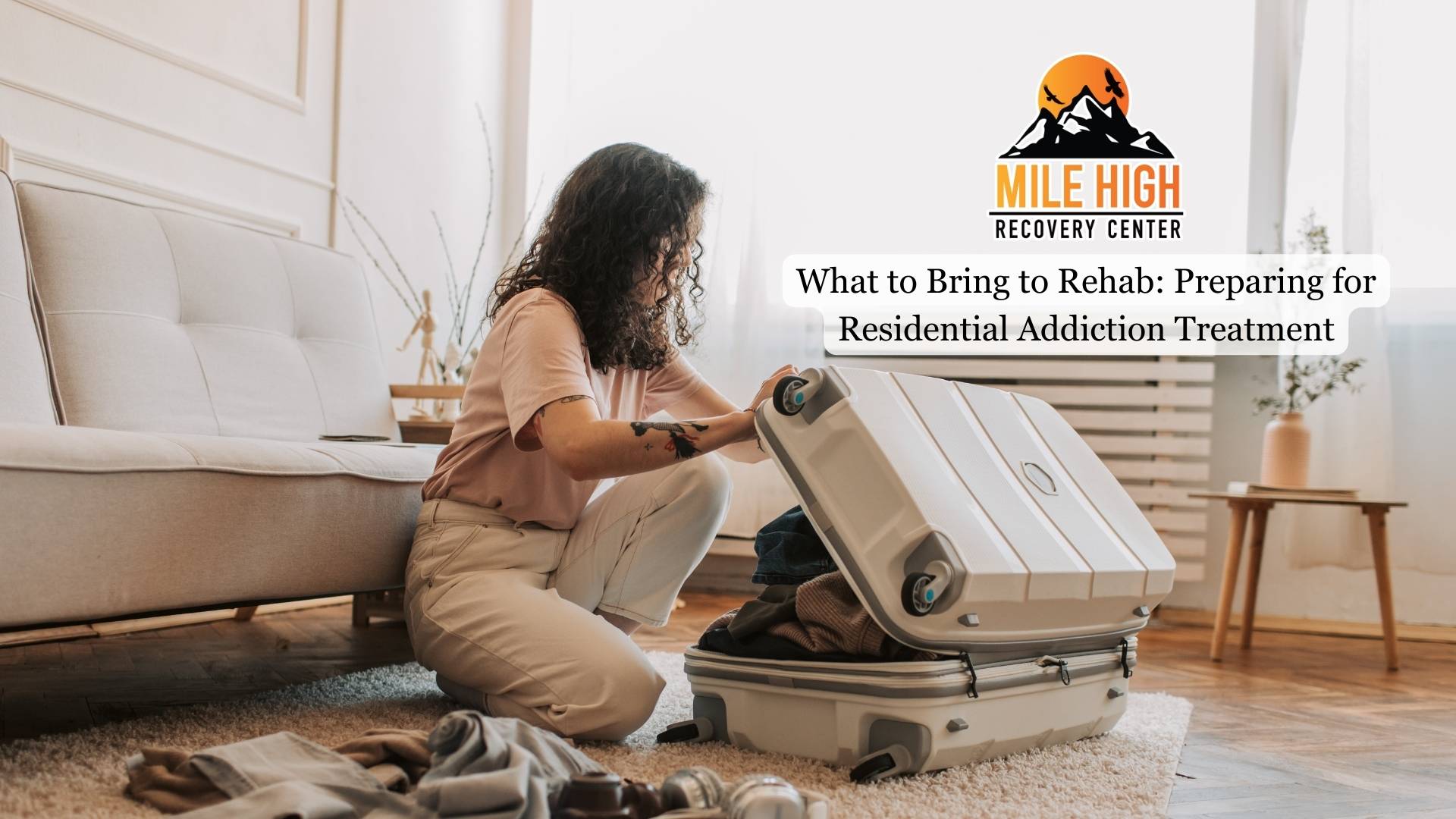Anxiety disorders are among the most widespread mental health conditions, affecting millions of people worldwide. While feeling anxious is a normal reaction to stress, ongoing symptoms that disrupt daily life point to something more serious.
Understanding the five types of anxiety disorders most commonly diagnosed can help individuals recognize the signs, seek support, and explore effective treatment options.

Generalized Anxiety Disorder (GAD)
Generalized anxiety disorder is characterized by chronic and excessive worry about everyday matters. This involves ongoing tension about work, health, family, or finances, even when no immediate threat is present.
People living with GAD may experience physical symptoms such as restlessness, muscle tension, fatigue, irritability, sleep disturbances, or difficulty concentrating. Because the worry feels persistent and uncontrollable, it can interfere with decision-making and overall quality of life. Long-term stress from GAD can also contribute to headaches, digestive issues, and lowered immune response, showing how deeply it affects both mental and physical health.
Some individuals turn to substances to manage this ongoing worry, which increases the risk of addiction. Recognizing these challenges highlights the importance of early, structured anxiety treatment to prevent complications and support healthier coping strategies.
Panic Disorder
Panic disorder involves recurring and unexpected panic attacks, which are sudden episodes of intense fear accompanied by physical distress. A panic attack can include rapid heartbeat, shortness of breath, chest pain, sweating, trembling, nausea, and dizziness, creating a strong sense of losing control. Episodes may peak within minutes but leave lingering fear that another attack could happen at any time.
Individuals may begin to fear the possibility of another attack, leading them to avoid certain situations. In severe cases, this avoidance can develop into agoraphobia, where people feel unsafe leaving home or being in public spaces. Without treatment, this cycle can severely limit independence and daily functioning.
Social Anxiety Disorder
Social anxiety disorder, sometimes referred to as social phobia, is more than simple shyness. It is marked by an intense fear of judgment or embarrassment in social situations, such as public speaking, eating in front of others, or attending gatherings. Physical symptoms such as blushing, sweating, or a shaky voice, often accompany emotional distress.
This condition often causes people to withdraw, avoid opportunities, or feel anxious even when preparing for social events. Left untreated, it can limit career growth, strain relationships, and lower self-confidence. It may also increase the risk of isolation and depression due to reduced participation in daily social life.
Obsessive-Compulsive Disorder (OCD)
Obsessive-compulsive disorder is a condition where unwanted thoughts (obsessions) and repetitive behaviors (compulsions) interfere with daily life. Common behaviors include repeatedly checking locks, excessive hand washing, or needing items arranged in a particular order. Some obsessions center on fears of contamination, harm, or making mistakes, while compulsions are the behaviors used to ease the anxiety temporarily.
Many people experience intrusive thoughts occasionally, but OCD becomes disruptive when the compulsions consume hours of the day and prevent normal functioning. This struggle can also overlap with other mental health conditions, including depression or substance use challenges, which may complicate recovery.
Post-Traumatic Stress Disorder (PTSD)
PTSD develops after a person experiences or witnesses a traumatic event such as an accident, violence, or natural disaster. This disorder involves flashbacks, nightmares, hypervigilance, and strong emotional distress when reminded of the trauma. Individuals may also avoid places, conversations, or people associated with the event.

PTSD can lead to severe withdrawal from everyday activities, difficulty maintaining relationships, and heightened physical symptoms such as rapid breathing, increased heart rate, and exaggerated startle responses. Because the distress can feel overwhelming, some individuals may turn to alcohol or drugs in an attempt to cope, increasing the risk of addiction. PTSD can also increase the likelihood of depression, substance misuse, or emotional numbness, which complicates recovery and highlights the need for professional care.
Specific Phobias
Specific phobia refers to an irrational and heightened fear of a particular object, situation, or activity. Common triggers include heights, spiders, flying, or medical procedures. Even though the feared object or situation presents little to no real danger, the anxious response can be overwhelming, often leading to symptoms that resemble panic.
Avoidant behaviors often follow, disrupting daily routines and limiting opportunities for growth. Someone afraid of driving, for instance, may struggle to maintain employment or social connections. Because the triggers are specific, the impact can be underestimated, but the disruption to daily life is significant.
Treatment and Support
These conditions involve both emotional distress and physical effects, so treatment must be comprehensive. Evidence-based approaches such as cognitive behavioral therapy, DBT, or exposure therapy help individuals challenge distorted thinking, while medication may stabilize brain chemistry to reduce constant worry or fear. Healthy routines, including exercise, balanced sleep, and mindfulness, further reinforce recovery and help lower relapse risks.
Structured inpatient and outpatient treatment programs also recognize that untreated mental health struggles can increase vulnerability to substance use as people turn to alcohol or drugs for relief. Addressing both anxiety and addiction together through integrated care teaches healthier coping skills, reduces avoidance patterns, and strengthens long-term resilience. Professional support and peer groups create accountability and decrease isolation, leading to improved recovery outcomes and a return to more stable daily living.
Final Thoughts from Mile High Recovery
Several types of anxiety can significantly affect daily life, but they are all treatable with the right approach. Recognizing whether you or someone you know may be experiencing GAD, panic disorder, OCD, or PTSD is the first step toward effective care.
At Mile High Recovery, we understand the complexity of these conditions and how overwhelming they can feel. Because anxiety often overlaps with substance use, our evidence-based treatment programs in Denver, CO, are designed to address both challenges together. We help individuals manage stress, build resilience, and develop healthier coping strategies that support long-term recovery.







